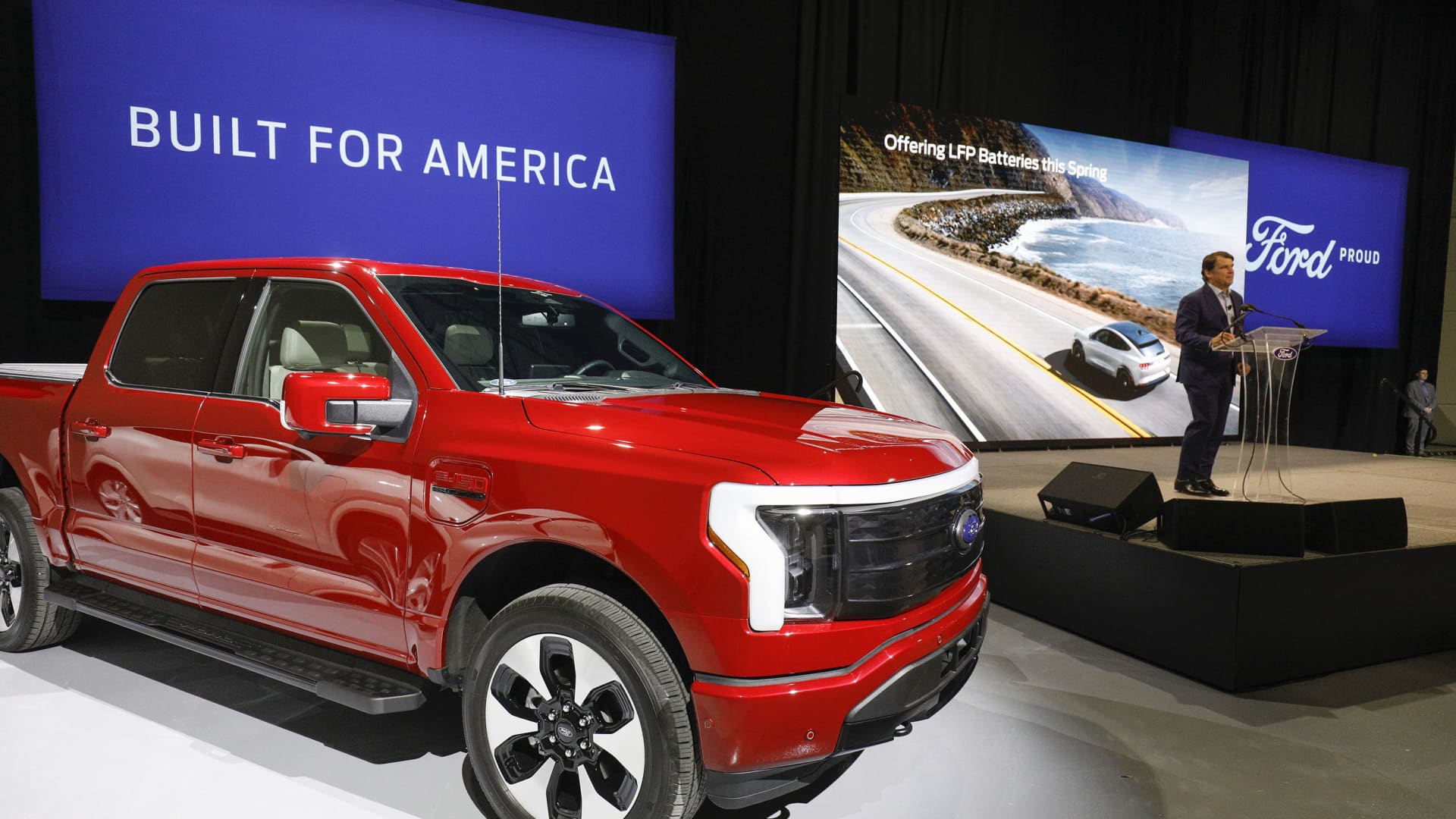DETROIT – U.S. lawmakers are seeking to review a licensing deal between Ford Motor and China-based CATL that would allow the automaker to produce battery cells developed by the global supplier at a planned $3.5 billion plant in Michigan.
In a letter Thursday addressed to Ford CEO Jim Farley, chairs of the House Select Committee on the Chinese Communist Party (CCP) and the House Ways and Means Committee demanded the automaker provide a copy of the licensing agreement and any communication about the deal between the two companies as well as between Ford and the Biden administration regarding any potential tax credits.
The letter also questions the number of Americans that the plant will employ compared with Chinese workers; whether the deal should qualify for federal tax funding; CATL’s potential connections to forced labor practices; and if the deal indeed assists in lowering the country’s dependency on China for parts and materials for electric vehicles.
The Michigan plant is expected to open in 2026 and employ about 2,500 people, according to the Detroit automaker. It will produce new lithium iron phosphate batteries, or LFP, as opposed to pricier nickel cobalt manganese batteries, which the company is currently using. The new batteries are expected to offer different benefits at a lower cost, assisting Ford in increasing EV production and profit margins.
Ford follows EV leader Tesla in using LFP batteries in a portion of its vehicles, in part to reduce the amount of cobalt needed to make battery cells and high-voltage battery packs.
Several hundred of the proposed 2,500 jobs managed by Ford will be staffed by CATL employees from China until the licensing agreement expires in 2038, according to the letter.
“Indeed, although the executives of the proposed project will be US-based Ford employees, it appears that the project will rely on CATL employees from the PRC to maintain operations in the long term,” the lawmakers wrote.
Ford has adamantly defended the deal since it was announced in February, saying it is simply licensing the company’s processes for its facility in rural Michigan, which will be a wholly owned subsidiary that creates thousands of U.S. jobs.
Ford spokesman T.R. Reid said Friday the company is reviewing the letter but declined to directly comment on the message.
“Broadly, a lot of what’s been said and implied about this project is wrong. Instead of buying these batteries from suppliers in Asia – like other automakers do today – we’re investing $3.5 billion to make them in a plant built and run by a wholly owned Ford subsidiary, creating 2,500 new American jobs in the process. This is good for customers, good for the country and good for our company,” he said in an emailed statement.
Company officials have said they expect the battery cells produced at the plant to qualify for federal incentives under the Biden administration’s Inflation Reduction Act.
IRA incentives for domestically produced battery cells include credits of $35 per kilowatt hour produced and $10 per module. Ford said in May that it expects the plant to have an annual output of about 42 gigawatt hours once it’s fully up and running.
China ties
The tie-up between Ford and CATL has previously been criticized by some Republican lawmakers such as Sen. Marco Rubio and Rep. Jason Smith, chairman of the House Ways and Means Committee. Smith cosigned the Thursday letter with Rep. Mike Gallagher.
Gallagher, who chairs the House Select Committee on the CCP, has spearheaded several probes into U.S.-China business interests. The Wisconsin Republican recently questioned American firms’ eagerness to work with Chinese companies in light of the Chinese Communist Party’s alleged human rights abuses and military campaigns.
“You’re taking on the CCP as your business partner when you’re doing business in China,” Gallagher told reporters earlier this week. “To me, the far more fundamental question is why do so many American businesses and asset managers want the CCP as a business partner?”
Smith previously sent a letter to Farley in April seeking information about the deal with CATL, formally named Contemporary Amperex Technology Co. The new letter states Farley’s previous responses “did not provide the level of detail sought by the Committee.”
CATL also has ties to Xinjiang Lithium through its former senior manager Guan Chaoyu, who purchased the brand through a limited partnership after CATL quietly divested 23.6% of its ownership stake shortly after the licensing agreement was announced.
“Xinjiang Lithium—which aims to become the largest lithium carbonate producer in the world—is tied through wholly-owned subsidiaries and other relationships to companies that engage in state-sponsored labor transfer programs in the Xinjiang region,” the lawmakers wrote. “The laborers in these programs are in many cases ‘transferred directly from camps to factories’ and ‘subjected to constant surveillance.'”
